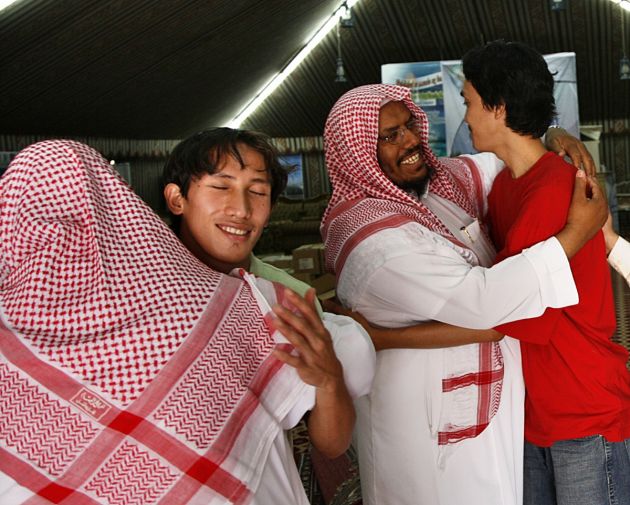27 Christians in Saudi Arabia arrested for using house as a church

Saudi authorities have swooped on a house in the eastern province city of Khafji, on the border with Kuwait, and arrested 27 people for using the premises as church last week.
Members of the Commission for the Promotion of Virtue and Prevention of Vice (Haia) also confiscated copies of the Bible and various musical instruments from the people during the raid.
The swoop was prompted by a tip from a citizen, reported the English-language newspaper Saudi Gazette.
Those arrested on September 5 were of various Asian nationalities, including women and children, the newspaper reported.
"A citizen reported suspicious activities in the house to the Haia and alleged that an Indian man had turned his residence into a church," said the report.
The arresting authorities supposedly found the men, women and children engaged in religious rituals in one of the rooms, it added.
Public worship of any religion besides Islam is banned in the kingdom, where Sunnis make up more than 90 percent of the population.
A Washington-based Christian religious freedom advocate denounced the raid, saying that it has always been an official policy of Saudi Arabia to continue its "religious cleansing."
"It is the only nation state in the world with the official policy of banning all churches. This is enforced even though there are over 2 million Christian foreign workers in that country," FoxNews.com quoted Nina Shea, director of the Hudson Institute's Center for Religious Freedom, as saying.
She said that those victimized were typically poor from Asia and African countries with weak governments.
An American Republican Party lawmaker, Frank Wolf said he hoped the U.S. government would speak up about the anti-Christian crackdown in Saudi Arabia.
He also added that he will urge the U.S. ambassador in Riyadh and the State Department to assist the arrested Christians, reported FoxNews.com.
Wolf was also quoted as saying that the crackdown was not surprising since the Saudi regime "did not want our soldiers to wear crosses during the [1991] Desert Storm" operation in Iraq.